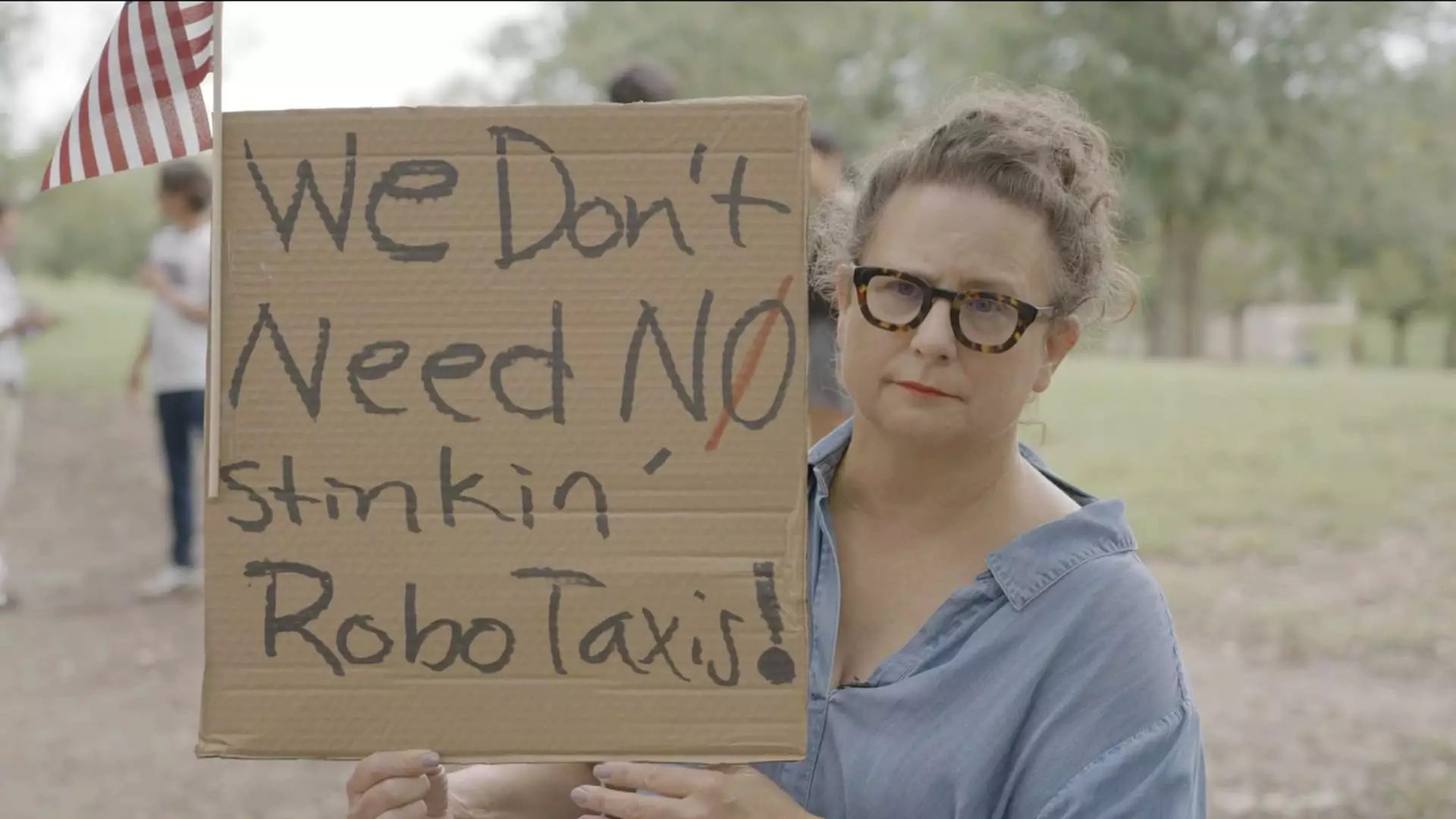The anticipation surrounding Elon Musk’s imminent robotaxi service in Austin, Texas, has sparked not only excitement but also fierce opposition. Scheduled to launch on June 22, this new venture by Tesla faces vocal critics who cite significant public safety hazards. Diverse groups, including public safety advocates and political dissenters, rallied downtown to raise awareness about potential risks associated with Tesla’s semi-automated driving systems. Their collective outcry is a response to not just technical concerns, but also to Musk’s troubling history of political maneuvering, particularly his ties to the previous Trump administration.
Automation vs. Safety: A Frightening Dichotomy
Tesla offers two levels of automation through its vehicles: the standard Autopilot and the premium Full Self-Driving (FSD) package. While marketed as cutting-edge technology, these systems have been implicated in numerous accidents, including fatal incidents, raising red flags for safety advocates. The National Highway Traffic Safety Administration has documented alarming statistics that demonstrate the dangers associated with partially automated systems. Critics argue that the rush to innovate should be tempered by a rigorous emphasis on safety standards—something they feel has been glaringly lacking.
The irony is palpable: as Musk rallies investors and influencers toward a vision of a safer, more efficient transportation mode, everyday citizens question their safety assurance. Activists from organizations such as The Dawn Project showcased a recent FSD version during protests, demonstrating its unsettling failures—like bypassing a school bus with its stop sign prominently displayed and colliding with a child-sized mannequin. This serves as a stark illustration of the disconnect between Tesla’s ambitious future and the chaotic reality that could emerge with its rollout.
Political Undertones Add Complexity
Musk’s controversial political engagements aren’t merely incidental to the discussion; they play a significant role in shaping public perception of his ventures. Protesters like Stephanie Gomez have pointedly called out Musk’s political activities, stating that they erode trust in Tesla’s ethical standards and safety practices. When the head of a multi-billion dollar company, particularly one handling advanced technology that affects public safety, is interlinked with contentious political narratives, skepticism is only natural.
Moreover, the protesters express a broader concern regarding transparency in safety testing, which is crucial for technologies that impact daily commuters. As the call for public accountability intensifies, Tesla’s reluctance to disclose safety data surrounding the development of its robotaxis raises serious questions about its commitment to consumer safety versus profit.
Uncertainty in the Future of Transportation
As Tesla stands on the brink of launching its robotaxi service, it is evident that the innovative aspirations of Silicon Valley must not overshadow the foundational principle of ensuring safety. The lure of automation is immense, but the cost of disregarding public safety could be catastrophic. For a company that prides itself on revolutionizing transport, the current turmoil reflects a worrying oversight.
The complexity of this situation underlines an urgent need for a balance between innovation and safety, transparency and trust. The protests may seem like an impediment to Musk’s vision, but they could also pave the way for necessary conversations about ethical responsibilities in the face of cutting-edge technology. It is the citizens, after all, who will bear the consequences of ambitious leaps into automation without an adequate foundation of safety protocols.

